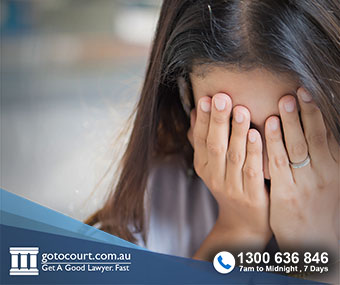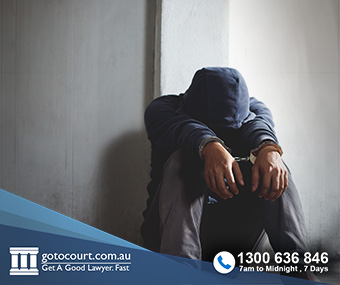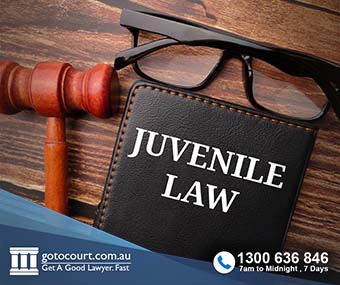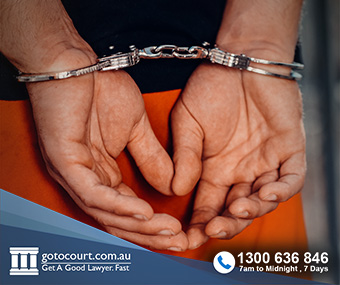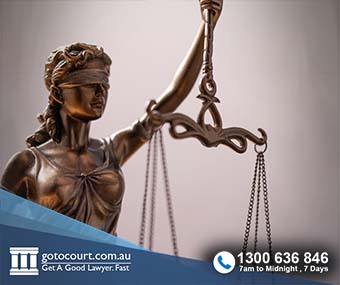Call our lawyers
now
or,
have our lawyers
call you
Grievous Bodily Harm in Queensland (QLD)
Updated on Dec 28, 2022 • 5 min read • 423 views • Copy Link
Grievous Bodily Harm in Queensland (QLD)
In Queensland, there is a range of offences relating to unlawfully causing harm to another person, all of which can attract terms of imprisonment. The most serious offence involving causing harm to another person is grievous bodily harm.
What is grievous bodily harm?
Grievous bodily harm includes:
- The loss of a part or an organ of the body;
- Serious disfigurement;
- A bodily injury that, if left untreated, would be likely to endanger life or cause permanent injury to health (whether or treatment is actually available).
Unlawfully doing grievous bodily harm
Section 320 of the Crimes Act 1899 contains the offence of unlawfully doing grievous bodily harm. The offence is punishable by imprisonment for up to 14 years.
If a grievous bodily harm offence under section 320 is committed under circumstances of aggravation, the penalty imposed will be greater.
Circumstances of aggravation are:
- That the offence was committed in a public place and the offender was intoxicated (Section 108B, Penalties And sentences Act 1991);
- That the offence was committed by a participant in a criminal organization at the direction of, for the benefit of, or in association with other participants in the organization (Section 161Q, Penalties and Sentences Act 1991);
If an offence is committed under the first circumstances of aggravation listed above, the court must make a community service order regardless of whether it also imposes other penalties. However, if the offender is unable to comply with a community service order because of a disability, a community service order does not have to be made.
Committing an act intended to cause grievous bodily harm
Section 317 of the Crimes Act 1899 contains the offence of committing an act intended to cause grievous bodily harm. Under this provision, it is an offence punishable by life imprisonment to commit certain acts with intent to do grievous bodily harm.
These acts include:
- causing an explosive substance to explode;
- sending or delivering an explosive substance to a person;
- putting a corrosive fluid or a destructive or explosive substance in a place;
- throwing a corrosive fluid or a destructive or explosive substance at a person.
Jurisdiction
Grievous bodily harm offences are indictable offences and are finalized in the District Court. However, all criminal matters start in the Magistrates Court and your matter will go through a number of procedural stages in the lower court before it is transferred to the District Court for finalization as a plea hearing or a jury trial.
Pleading guilty to grievous bodily harm
If you have been charged with an offence involving grievous bodily harm, you should get thorough legal advice before deciding to plead guilty. Go To Court Lawyers criminal solicitors will advise you on:
- The strength of the case against you
- Any possible defences
- The likely penalty range if you plead guilty
- The court processes involved in finalizing your matter.
If you decide to plead guilty, our criminal team will support you in gathering material to provide to the court in your defence. This may include character references from people who know you well and are aware of the charge and evidence of any steps you have taken to address the causes of your offending.
Pleading not guilty to grievous bodily harm
If you have been charged with a grievous bodily harm offence and want to fight the charge, Go To Court Lawyers’ experienced criminal solicitors will advise you of the strength of the case against you and of the viability of any potential defences.
The prosecution will be required to provide a brief of evidence to the defence. This is a summary of all the evidence that will be relied on if you take the matter to trial. Your lawyer will review the brief of evidence carefully with you and discuss the strengths and weaknesses in the prosecution case.
If you still want to plead not guilty, your matter will go through a procedure known as a committal hearing. This will occur in the Magistrates Court. A magistrate will review the evidence and decide whether there is a strong enough case against you to commit the matter to the District Court.
If the matter is committed to the District Court, it will then be listed for a trial in front of a jury. If there is insufficient evidence to commit the matter for trial, the matter will be dismissed.
Applying for bail on a grievous bodily harm charge
If you have been remanded on a grievous bodily harm charge, Go To Court Lawyers can assist you to apply for bail. When a person applies for bail in Queensland, the court decides whether to grant basil based on whether there is an unacceptable risk that:
- They would fail to come to court
- They would commit an offence
- They would interfere with witnesses or obstruct the course of justice
- Endanger the safety or welfare of a person.
If you require legal advice or representation in any legal matter, please contact Go To Court Lawyers.


Affordable Lawyers
Our Go To Court Lawyers will assist you in all areas of law. We specialise in providing legal advice urgently – at the time when you need it most. If you need a lawyer right now, today, we can help you – no matter where you are in Australia.How It Works








1. You speak directly to a lawyer
When you call the Go To Court Legal Hotline, you will be connected directly to a lawyer, every time.


2. Get your legal situation assessed
We determine the best way forward in your legal matter, free of charge. If you want to go ahead and book a face-to-face appointment, we will connect you with a specialist in your local area.


3. We arrange everything as needed
If you want to go ahead and book a fact-to-face appointment, we will connect you with a specialist in your local area no matter where you are and even at very short notice.



